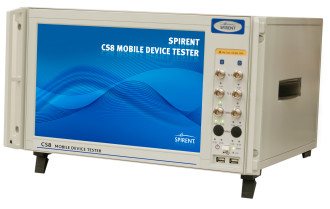 A new report says that the industry is to face a huge skills shortage because nearly half of all techies plan early retirement.
A new report says that the industry is to face a huge skills shortage because nearly half of all techies plan early retirement.
The report by recruitment firm Randstad Technologies said there will be a mass skills exit in 2020 as a large proportion of senior talent or baby boomers leave the workforce to retire.
More than 80 per cent of tech workers feel under pressure to retire at state pension age and nearly half (49 per cent) plan to retire early.
The number of people in the workforce aged 50 to state pension age will be 13.8 million by 2022, and the number aged 16 to 49 will have reduced by 700,000.
Randstad claims that the exit of these older workers will worsen the current skills shortage. Most of the older workers (78 per cent) said they felt they wouldn’t be wanted in the workforce when older, and 12 per cent were concerned about age discrimination in their sector.
According to Randstad, technology specialists feel age pressure more than most, with 83 per cent claiming they felt this stress, compared with 75 per cent of other workers in the UK.
More than 36 percent said the pressure was significant, and just 14 per cent said they felt no pressure.
Ruth Jacobs, managing director of Randstad Technologies, said: “The tech industry is facing an expansive experience exodus. The early retirement of the baby boomer generation could lead to a serious skill shortage in the sector. This generation helped build the technology sector in the 1980s. Companies need this experience if the sector is going to continue to expand. There is already fierce fighting for talent as it is, and early retirements will make it even harder to find the right people for the right jobs.”
It is possible to fix the problem. Randstad said that flexible working hours for older workers would help keep them in positions longer, an option 43 per cent of those surveyed agreed with, as would changing their roles to act more like mentors to junior staff, thus sharing their skills and experience. In total, 41 per cent of respondents agreed with mentoring as an option.
Introducing retraining schemes for older workers so they can keep up with the latest technology was also a popular suggestion, with 34 per cent opting for that as a solution.
Jacobs added: “To avoid the impending tech talent shortage, employers need to make sure that their company’s working hours fit with the demands placed on more senior staff. Having the option to work around other responsibilities such as caring for a loved one or treating any health issues would be a big benefit to older workers. As an increasing amount of work in the tech sector can now be done via the cloud, these changes should be easier to introduce. While some tech firms may already have some form of flexible working, it’s important to make sure older workers know these schemes are available.


















